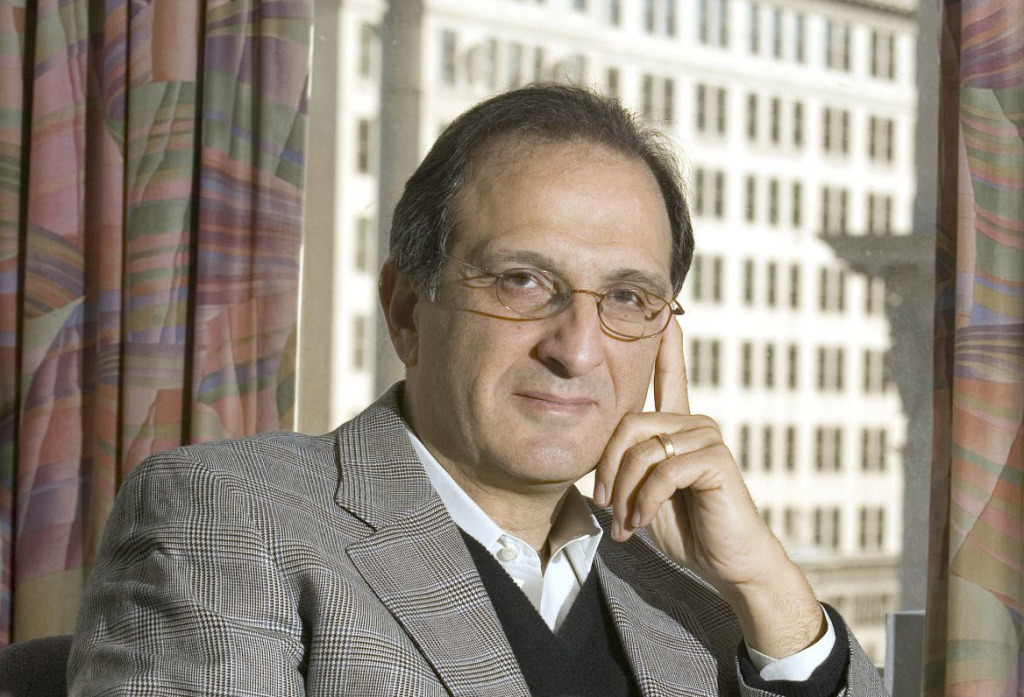December 26-2014

A new poll taken in Iran and the Arab world shows that a majority of Arabs—even in Iraq—view Iran’s political role in the region negatively.
In Iran, the poll found that an overwhelming majority of 87 percent wants the government to build nuclear weapons.
The poll was taken by Zogby Research Services (ZRS), a polling firm operated by James Zogby, who is also president of the Arab American Institute.
Zogby said, “The results shed light on the deep policy divide that exists between Iran and its neighbors and the dangerous disconnect in the way Arabs, on the one side, and Iranians, on the other, assess the regional role of the Islamic Republic.”
Zogby said, “In a nutshell, what we found was an Arab world that was increasingly wary of Iran’s policies and nuclear ambitions, and lacking confidence in the outcome of the P5+1 negotiating process. At the same time, we found an Iranian public increasingly in favor of their country’s regional engagement, their ‘right to possess nuclear weapons’ and willing to pay the price in economic sanctions and international isolation to maintain their nuclear efforts.”
A series of polls over the past six years have shown Arab attitudes toward Iran undergoing dramatic changes. From 2006 to 2008, as many Arabs were reeling from Israel’s devastation of Lebanon and still angry over the American invasion and occupation of Iraq, Iran received high favorable ratings across the Middle East for its “resistance against the West.”
But attitudes changed as Iran’s Lebanese ally, Hezbollah, turned its weapons inward, in what some perceived as a sectarian power-grab, and Iran was increasingly judged to be fueling sectarian strife in several Arab countries.
Zogby wrote in 2012 that Iran’s role supporting the Assad government in Syria became “the nail in the coffin” of Iran’s standing in Arab public opinion.
In 2008, Iran had high favorable ratings in the 70 percent to 80 percent range in many Arab countries.
By 2011, those ratings had plummeted as much as 60 to 70 points in most countries, leaving Iran with only minimal support in the Arab world.
Zogby, a Lebanese Christian, warned against the Western tendency to see the anger turned on Iran as simply a reflection of Sunni-Shia frictions. “In fact, Zogby wrote, “it was politics that played a decisive role in the decline. In the eyes of many Arabs, Iran was no longer being perceived as a bastion of principled resistance. It was increasingly viewed as a meddlesome neighbor pursuing a dangerous and divisive agenda.”
In the latest Zogby poll, when Arabs were asked whether Iran “contributes to peace and stability in the region,” from 74 percent to 88 percent percent of Jordanians, Egyptians, Saudis and Emiratis responded in the negative. Even 57 percent of those in Iraq—where Shias comprise more than 60 percent of the population—saw Iran’s regional role as having a negative impact.
In marked contrast, 98 percent of Iranians said that they believed that their country was playing a positive role in the Middle East and that their government’s policies were having a positive impact on Iraq (77 percent), Syria (72 percent), Lebanon (68 percent), Bahrain (58 percent) and Yemen (52 percent).
With regard to Iran’s nuclear program, majorities or strong pluralities in every Arab country believed Iran “has ambitions to produce nuclear weapons.” And while a Zogby poll conducted earlier this year found most Arabs supported a negotiated solution to the nuclear standoff with Iran, in this latest poll, majorities in every country said they are not confident the negotiations “will succeed in removing the potential threat cause by Iran’s nuclear program.”
Iranian attitudes were striking. While Supreme Leader Ali Khamenehi has said flatly that Iran will not develop nuclear weapons, calling them “immoral,” it appears the Iranian people aren’t listening. When asked for their opinion on such weapons, 87 percent said Iran should develop them either because Iran is a “major nation” and has a right to them or because, “as long as other countries have nuclear weapons, we need them too.”
This 87 percent support for nuclear weapons in 2014 is up dramatically from the 68 percent who held such views in 2013.
Additionally, two-thirds of Iranians assert they are willing to pay the price in sanctions and isolation to continue advancing their nuclear program.
When asked if they were better off or worse off than they were five years ago, only 34 percent of Iranians said better off, against 36 percent who maintained that they were worse off.
In response to most questions about the performance of the Rohani Administration, nearly one-half of the Iranians polled expressed some discontent with their President’s policies in creating jobs, protecting civil rights, and reforming the government.
Ironically, the one area where Iranians gave President Rohani his highest performance score was in “improving relations with Arab neighbors.”























